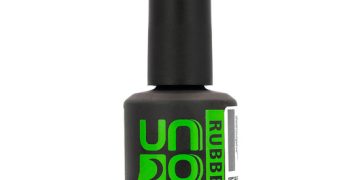Although the past 10 years or decade or so has seen an increase in debit and credit card transactions to a large extent, this also brings with it higher chances of card-related frauds. From duplicating your card (card cloning) to procuring your details over the phone or through emails, fraudsters are leaving no stone unturned to grab your hard-earned money.
And all these can even harm your SBI cibil score, too, hence denting your loan and credit card eligibility as well as approval chances.
So if you are struck by such fraud or have heard of it, it’s important to beware of steps to take when such frauds happen. This is vital because everyone today is at risk of getting caught in such frauds on their digital transactions and payment modes.
Hence, here’s a step-by-step guide; besides periodically completing your cibil score check,
Regarding what one should know and do after detecting any unauthorized transaction on their credit or debit card.
Immediately inform the concerned bank.
The first & foremost step that one should take upon detecting a fraudulent transaction is to report it to their bank and get the card blocked in order to prevent further misuse and minimize loss. Immediately notify the bank either by calling customer care or visiting the bank’s website or branch premises.
Upon the occurrence of such fraudulent transactions, not only is it important to go for a cibil score check but also notify the concerned bank at the earliest, as the longer the time taken to notify the bank, the bigger is the risk regarding loss to the customer and/or bank.
Know the extent of liability for the losses arising out of such fraudulent transactions
The RBI has clearly laid and notified guidelines for limiting the liability of customers in case of unauthorized electronic banking transactions. These guidelines are as under:
*Zero liability of customer- The Customer’s liability for the fraudulent transaction would be zero in two cases. But remember, irrespective of the reason, your SBI cibil score is likely to take a hit, especially if the transaction amount is big.
So, first and foremost, the liability would be nil if the cause is sheer deficiency or negligence on the part of the card issuer. Secondly, in case the fraudulent transaction has occurred due to a third party breach wherein the responsibility neither lies with the bank nor with the customer, but lies elsewhere in the system, provided the customer has notified the bank within 3 working days of receiving the notification regarding the unauthorized transaction. Also, although your credit score is likely to not take an immediate hit but maybe harmed next month or so, remember to conduct a cibil score check from time to time.
*Limited liability of customer –In case the customer’s negligence led to the fraud, such as where the payment credentials were shared by the customer, he/she will bear the entire loss until reporting of the unauthorized transaction to the bank. But any amount of loss that occurs after you have reported the unauthorized transaction shall be borne by the bank itself. Amidst the chaos that must be going on in your head when struck with such fraud on a card, try to time to time perform a cibil score check to assess the already done/possible damage coming your way due to the fraud, if done on a credit card.
Customer’s liability will usually be up to Rs 5,000 in case of BSBD account; up to Rs 10,000 in case of all other savings accounts as well as credit cards with a credit card limit up to Rs 5 lakhs; and up to Rs 25,000 for credit cards with a credit limit above Rs 5 lakhs.
And in case of delay in reporting the fraudulent transaction beyond seven days, the liability for losses will be as per the bank’s policy. Moreover, the more you delay, the higher the chances of your SBI cibil score getting hit until the issue gets resolved, and you contact the same to your bureau/bank and get it rectified at the earliest.
What happens after you complain?
Once the customer reports a fraudulent transaction, the bank will immediately block the debit/credit card. In cases wherein the customer’s liability is either zero or limited, the bank is bound to reverse/credit the amount involved within 10 working days of reporting the unauthorized transaction.
If the complaint is resolved within 90 days from the date of receipt of a complaint, and the liability of the customer is established within such time, the bank has to compensate the customer as per the prevailing provisions. Even if the bank fails to resolve the complaint within 90 days, although until then, your SBI cibil score will keep getting harmed, it is bound to compensate the customer as per the prevailing provisions.
Moreover, the bank has to ensure that the cardholder does not bear any additional interest cost on the credit card, or lose out on any interest on the savings account/debit card, due to the unauthorized transaction.
What if the bank doesn’t resolve your complaint?
*Approach Banking Ombudsman- If the bank wrongly allocates the customer liability arising from the fraudulent transaction or tries to deviate from the RBI-set guidelines, the customer can approach the banking ombudsman for dispute resolution.
Customers can claim compensation for any loss suffered either directly as a consequence of the act or omission of the bank, subject to a maximum of Rs 20 lakhs. The Ombudsman can provide an additional compensation of up to Rs 1 lakh after taking into consideration the loss of the complainant’s time, expenses incurred, harassment and mental agony suffered, if any. But remember that besides all this, it is your responsibility to contact your credit bureau, too, to get your SBI cibil score restored back and improved after rectifying fraud-related damage. After a couple of months or so, make sure to again go for a cibil score check to know if the rectification is done yet or not.
*Approach Appellate Authority- In case the customer is not satisfied with the Ombudsman’s ruling and is also witnessing that his or her SBI cibil score is also still not recovered, they can file an appeal easily against it before the Appellate Authority within 30 days of receiving the ruling or rejection of the complaint. Customers can approach the High Court if he/she is still not satisfied with the Appellate Authority’s ruling.














